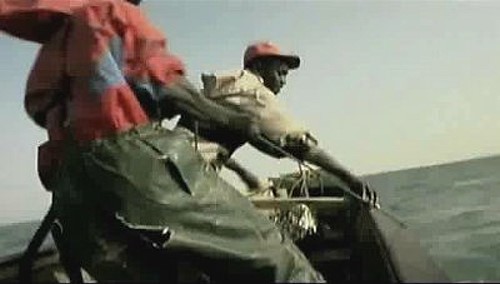 ‚Cry Sea‚ is a documentary by Cafi Mohamud and Luca Cusani about the way Senegalese fishermen are loosing their livelihoods as a result of overfishing, particularly as a result of modern, hyperequipped industrial fishing boats. They go the way of some formerly powerful fishing ports such as Lowestoft. The video traces the economic, institutional and technological drivers leading to their demise.
‚Cry Sea‚ is a documentary by Cafi Mohamud and Luca Cusani about the way Senegalese fishermen are loosing their livelihoods as a result of overfishing, particularly as a result of modern, hyperequipped industrial fishing boats. They go the way of some formerly powerful fishing ports such as Lowestoft. The video traces the economic, institutional and technological drivers leading to their demise.
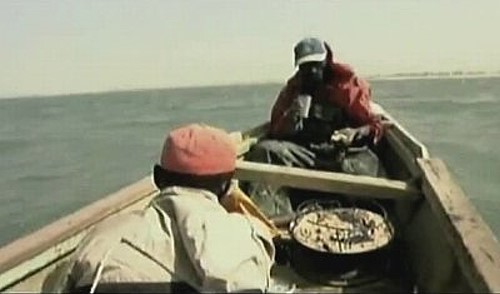 Interviewed people, notably Charles Clover, author of ‚The end of the line‘, people from the European industry and the fisherfolk in Senegal themselves are saying it can’t go on like this, yet it is still remarkably difficult in practice to change course The film gives a glimpse at the demographic pressures and the need for immigration in the face of lacking alternatives. Unless together we steer a radically different course, the seemingly inexorable march towards more complete destruction of natural resources and thus the present and future of people in these communities can not be stopped, certainly not by administrative means.
Interviewed people, notably Charles Clover, author of ‚The end of the line‘, people from the European industry and the fisherfolk in Senegal themselves are saying it can’t go on like this, yet it is still remarkably difficult in practice to change course The film gives a glimpse at the demographic pressures and the need for immigration in the face of lacking alternatives. Unless together we steer a radically different course, the seemingly inexorable march towards more complete destruction of natural resources and thus the present and future of people in these communities can not be stopped, certainly not by administrative means.
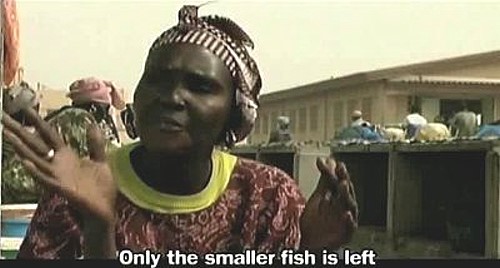 The captain of the Spanish vessel explains that they are fishing along the West African coast, wherever the fishing is good, sometimes in Senegal, some other times in Mauritania, Guinea Bissau or Guinea Conakry. His crew is not convinced it will last for very long, but meanwhile they need to pay back the loan for the modern trawler … and earn a good deal of money.
The captain of the Spanish vessel explains that they are fishing along the West African coast, wherever the fishing is good, sometimes in Senegal, some other times in Mauritania, Guinea Bissau or Guinea Conakry. His crew is not convinced it will last for very long, but meanwhile they need to pay back the loan for the modern trawler … and earn a good deal of money.
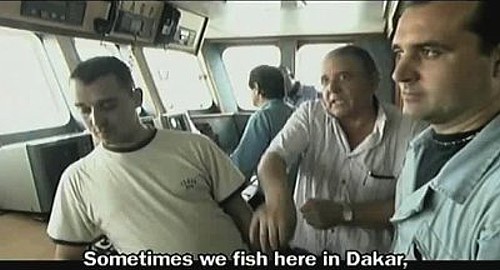 Meanwhile, the once busy port of Lowestoft in the UK has no trawlers based there anymore. and fishing their earlier grounds in the North Sea. Where 40 years ago hundreds of crates of North Sea fish were landed every day, today what little fish does get marketed does not come from domestic waters anymore.
Meanwhile, the once busy port of Lowestoft in the UK has no trawlers based there anymore. and fishing their earlier grounds in the North Sea. Where 40 years ago hundreds of crates of North Sea fish were landed every day, today what little fish does get marketed does not come from domestic waters anymore.
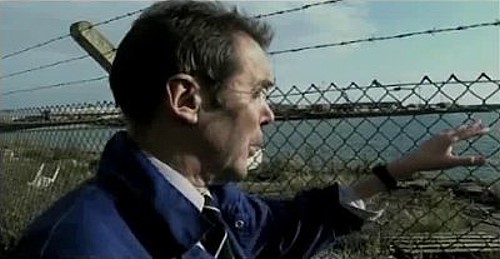 This touching video of almost 55 min. duration combines factual presentation with poetic shots putting affected people’s lives in sharp focus. All voices are in original language translated with English subtitles. The underlying music contributes well to the extraordinary atmosphere appealing as much to remedial action based on rationality as on humanistic and social justice grounds. Click here to watch ‚Cry Sea‚.
This touching video of almost 55 min. duration combines factual presentation with poetic shots putting affected people’s lives in sharp focus. All voices are in original language translated with English subtitles. The underlying music contributes well to the extraordinary atmosphere appealing as much to remedial action based on rationality as on humanistic and social justice grounds. Click here to watch ‚Cry Sea‚.
